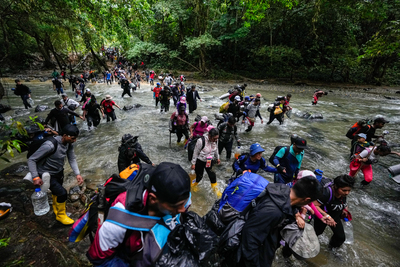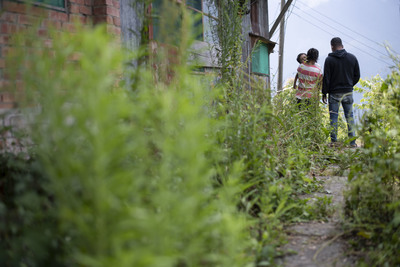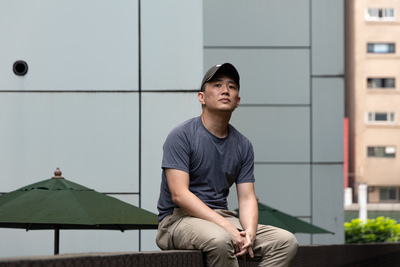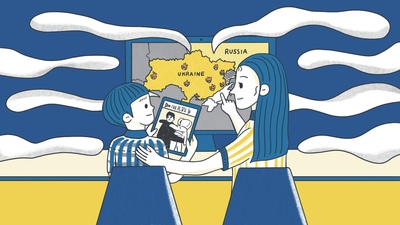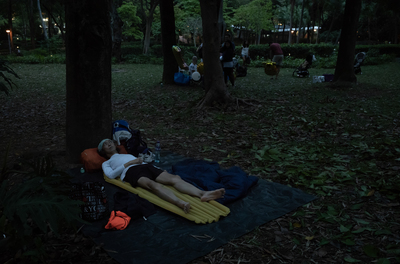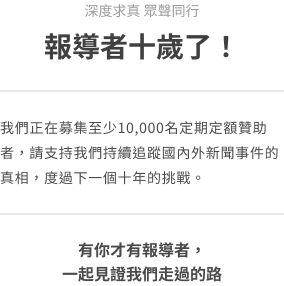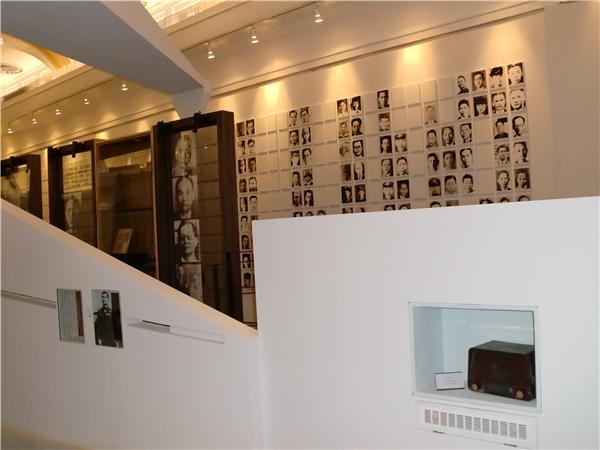
In 2016, Taiwan's supreme court ruled that a 228 victim family from Okinawa had the right to receive government compensation. Taiwan watcher Tsuyoshi Nojima asks what Japan can learn from the ruling.
What should we do about people who fall into the “cracks” of history? They may seem like problems without solutions, and force people to face bitter choices. I often wonder, however, whether there is a kind of “respect” that can only be gained after a country or society chooses to stand up and face these problems.
The case of the Okinawans killed during the 228 Massacre in Taiwan may be an example of this. In 2015, 72-year old Keisho Aoyama (青山惠昭) of Urasoe, Okinawa Prefecture sued the Taiwan government for compensation for the death of his father. The case was decided on February 17th, 2016, when Taiwan’s highest court ordered the government to pay Aoyama $6 million NTD ($267,000 USD). The Memorial Foundation of 228 decided to drop its appeal and give the verdict to Aoyama.
In January 2016, I went to Urasoe to speak with Aoyama about the impending court decision. “I’ll lose for sure,” he said, "but I'm going to fight all the way to the Supreme Court. The battle has just begun.”
That is because the Memorial Foundation of 228, which is in charge of compensation, at one point allowed Aoyama's claim; the foundation conducted interviews, including listening to survivor testimony.
But Taiwan's Ministry of the Interior said “first of all, regulations on compensation do not apply to foreigners,” and “second, Taiwanese who fought for Japan and Taiwanese comfort women have not received compensation for their role in World War II.” The Ministry argued that compensation should be made on the basis of “equality and reciprocity” and that Aoyama should not receive compensation. The rejection made Aoyama pessimistic.
About 30 minutes after the verdict was announced, I called Aoyama in Taiwan, and assumed the worst. “So, was at a loss in the end?” I asked.
Aoyama replied: "It was a complete victory. It’s hard to believe, but I won. With remorse for my father, I would like to affirm the high court’s decision. This judgement has surpassed the continuous negative outcomes.” He expressed his gratitude for the judgement with some excitement.
The 228 Massacre of February 28, 1947 was a historic event that changed the fate of postwar Taiwan. It contributed to the growth of Taiwan’s local consciousness, and led to the rise of the Democratic Progressive Party (DPP) and the Taiwan independence movement. However, there has been little discussion in either postwar Taiwan or Japan about the number of Japanese killed in the incident, that is, those from Okinawa.
In the 50 years before the end of World War II, Okinawa and Taiwan were both part of the Empire of Japan. Following the Meiji Restoration, Okinawa, then known as the Ryukyu Kingdom, became a part of Japan in 1879 under Nanshin-ron, or the “Southward Expansion Doctrine.” The Ryukyu Kingdom was abolished and replaced by Okinawa Prefecture. Following Japan’s victory over the Qing court in the Japan-Qing War (known as the First Sino-Japanese War in the West), Taiwan was ceded to Japan in 1895.
Economically, Taiwan had achieved a higher level of economic development under Japanese rule than Okinawa. As a result, many Okinawans came to Taiwan to work or migrate through various forms, such as fishing, agriculture, domestic help and so on. There were also close maritime exchanges between Taiwan and Okinawa, especially the Yonaguni and Ishigaki Islands. Of the Japanese who lived in Taiwan at that time, a slight majority were from Okinawa Prefecture, and had become semi-localized to Taiwan.
The background to the 228 Massacre — which began with the beating of a woman selling black market cigarettes and led to a popular uprising — was widespread resentment towards the corruption and incompetence of the Chinese Nationalist Party (KMT) in taking over Taiwan from Japan. Intense protests rose up all across the island. But then KMT troops from China landed in Keelung and massacred thousands without a proper trial or investigation.
Among them were Okinawans who remained in Taiwan. They were suddenly confronted with the Mandarin Chinese used by KMT soldiers, and could not understand the language. They were implicated and killed by the KMT without rhyme or reason. In particular, the Okinawan settlement located on Heping island in Keelung (then known as Sheliao island), was believed to have been the site of violent ethnic cleansing and was likely to have involved the entire settlement. Some researchers put the death toll at 30, but the truth is unknown.
Aoyama Keisho was born on Heping Island, to father Aoyama Esaki (青山惠先) of Kagoshima Prefecture, and mother Misumi Tokeshi (渡慶次美江) of Okinawa Prefecture. Aoyama Keisho left Taiwan when he was young and has almost no memory of being there. At the end of the war, Aoyama’s father was on a military expedition in Vietnam. In 1946, his mother cooperated with the KMT's Japanese repatriation policy, and returned to Kagoshima with young Keisho in tow. However, in a strange combination of circumstances, Aoyama Esaki, who knew nothing about the KMT's repatriation policy, returned to Keelung after being repatriated to Japan. Then, the 228 Massacre erupted, and he was never seen again.
Aoyama Keisho's mother has already passed away. She never remarried, and hoped that her husband would one day return. She was troubled with grief for the rest of her life.
Taiwan has a compensation system for victims of the 228 Massacre. Aoyama had filed his father’s death in absentia with the Japanese government, but changed his status back to “missing” and then applied for compensation in 2013. The Memorial Foundation of 228 recognized Aoyama’s father as a victim, but rejected his claim because of the “principle of reciprocity” advocated by the Ministry of the Interior. Aoyama then filed a lawsuit against the Foundation.
In the judgment, it was pointed out that the so-called “principle of reciprocity” does not apply to 228 victims, and that “foreigners are not excluded from the provisions, and compensation should be paid.”
Like Aoyama, there are three other Japanese nationals who also believe their family members were victims, and are ready to file claims. In addition, there were also Zainichi Korean settlements on Heping Island, and presumably other non-Taiwanese nationals involved. However, the deadline to apply for 228-related compensation will end in 2016, leaving a very short window for victims’ families. The ruling is unlikely to lead to a sharp increase in claims from foreigners.
What we should consider here is that the judgement is based on a point of view that requires the Taiwan government to treat non-Taiwanese in a fair and objective manner. As Japanese, we shouldn't simply affirm this decision, but put ourselves in someone else’s position, and think about this from a different viewpoint.
As the Taiwanese government has argued, Japan's post-war compensation for the roughly 200,000 Taiwanese soldiers and their families (30,000 of whom died in World War II) was only 2 million yen ($18,500 USD); compensation was awarded to the families of the dead and wounded in the 1990s. When the Sino-Japanese Peace Treaty (also known as the Treaty of Taipei) was concluded in 1952, the issue of compensation was shelved and has never been resolved since. It could be said that compensation for the Taiwanese, like the Okinawa victims, falls into a “historical gap.”
Of course, I also understand that there are complicated aspects to compensation for Taiwanese, including Japan-China relations and the diplomatic recognition of Taiwan. Compared with the issue of compensation for victims of 228, the legal response level should be slightly different. Nevertheless, 70 years after the end of World War II, there is a real sense that there are people who deserve compensation, even if that opportunity is gradually lost.
Taiwan has set an example for us. Both the Japanese people and the Japanese government should break away from the current national and legal frameworks and face these issues with utmost sincerity. Aren't these the things we should think about after Aoyama Keisho’s ruling?
(To read the Chinese version of this article, please click: 野島剛╱如何思考228事件沖繩人受難者的勝訴 )
深度求真 眾聲同行
獨立的精神,是自由思想的條件。獨立的媒體,才能守護公共領域,讓自由的討論和真相浮現。
在艱困的媒體環境,《報導者》堅持以非營利組織的模式投入公共領域的調查與深度報導。我們透過讀者的贊助支持來營運,不仰賴商業廣告置入,在獨立自主的前提下,穿梭在各項重要公共議題中。
今年是《報導者》成立十週年,請支持我們持續追蹤國內外新聞事件的真相,度過下一個十年的挑戰。

